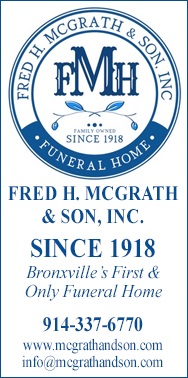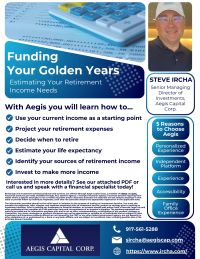From the Mayor: Supreme Court Ruling on Union Fees Could have 'Profound Consequences' on Bronxville Unions

By Mary C. Marvin
Jan. 27, 2016: On Monday, January 18, the United States Supreme Court heard oral argument in the case of Friedrichs v. California Teachers Association. The Friedrichs case seeks to overturn a 1977 Supreme Court decision that allows public employee unions to collect "fair share" fees from non-members to defray the cost of collective bargaining.
The outcome of this case could affect hundreds of millions of dollars in revenue currently received by our nation's public sector unions. All agree the case represents the biggest legal threat to organized labor in decades and a challenge to nearly 40 years of legal precedent.
Currently 23 states and the District of Columbia require public employees to pay for the cost of collective bargaining even if the employee disagrees with the union demands. In all 50 states, the same employees can opt out of the dues portion that finances union political activities.
The current case is funded by the Center for Individual Rights, a conservative organization that took a page from the liberal playbooks of the American Civil Liberties Union and the NAACP Legal Defense Fund, both of which enjoyed great judicial success in the 1960s and 1970s.
The strategy is to actively look for clients with potentially precedent-setting cases that fit an ideological aim and then pour resources into litigating them.
Given the Court's current makeup, the Center for Individual Rights sees this as its moment to advance its goals. The Center initially started as a vehicle intent on defending academic free speech amid what its supporters perceived as a climate of political correctness at major U.S. universities. They have since branched out to embrace other issues surrounding the First Amendment.
Rebecca Friedrichs, the lead plaintiff in the case under review, is an elementary school teacher in the California public school system. In interviews, she stated she was motivated to work against her union after serving as one of its officers for several years and finding its leadership unwilling to consider her suggestions. Chief among them was creating tenure laws that made it easier to fire bad teaches and abolishing seniority systems that disregarded merit.
As oral arguments took shape, defenders of the 1977 "agency fee" requirement argued that it had demonstrably led to government efficiency and with it, labor peace, eliminating a great potential for workplace tension since everyone had a horse in the race.
In addition, the need for revenues to finance collective bargaining, including lawyers' fees, allows unions to have strength in numbers as they often negotiate with larger, more well-funded entities.
Proponents of the agency fee predict a "death spiral" if the 1977 decision is overturned; membership will drop as most people when given a choice will opt for a free service, in this case collective bargaining. The union will then have to increase dues because of fewer union members to cover expenses, thus creating an increased monetary burden causing additional workers to quit the union. In the California Teachers' Association brief, its lawyers argue that the contracts for the more than 4.5 million teachers nationwide will be thrown into disarray with an overturning of the 1977 case, Abood v. Detroit Board of Education.
Those in favor of the reversal argue that all public union activities have a political component and being made to support them is compelled speech that violates the First Amendment.
Others in favor of Ms. Friedrichs argue that those who oppose their local union, as she does, but are forced to pay hundreds of dollars into their coffers annually are not "free riders," but rather "captive passengers."
Others directly blame union contracts as the underlying causes for national bankruptcies from Detroit to Stockton.
As background, membership in unions nationwide has been on the decline since the end of World War II when 35% of employed Americans belonged to unions. By 2014, the numbers had dropped to 11%, though in the government sector, unions continue to represent 36% of the employees.
Though the Abood vs. Detroit case in 1977, upholding union payments by non-members to the union, was a unanimous decision, both the composition of the court and two recent rulings demonstrate a move away from its ruling.
In 2012, the Justices voted 7-2 affirming that a California public employee union could not impose an additional fee on members without their assent.
In a 5-4 ruling in 2014, the Court declared that Medicaid-funded home health care workers in Illinois did not have to pay dues to any public employee union.
Though neither case was a specific overrule, Justice Alito, writing for the majority in the 2014 case said, "No person in this country may be compelled to subsidize speech by a third party that he or she does not wish to support."
Court observers see this as the writing on the wall.
Last week Justice Kennedy stated that when you disagree on fundamental issues such as merit pay and tenure with your union, your forced subsidy turns you into a "compelled rider" on the union train.
In contrast, Justice Kagan warned a decision against fair share fees "would radically restructure the way workplaces are run across the country."
In an interesting twist, Justice Scalia could be the swing vote, having written in a case decided 25 years ago that "public employee unions should be able to collect from non-members to perform statutory duties as exclusive bargaining agent."
One thought that came to my mind is that if public employees are let off the hook from union dues, then are compulsory bar association dues for lawyers a logical next case to be litigated? Supporters of the bar believe that the association and its revenue help to regulate the legal profession and with it the equality of legal services.
The ruling, expected in late June, could have profound consequences on the various unions represented in Bronxville, be unions for the police, fire, teachers, or public works employees.









